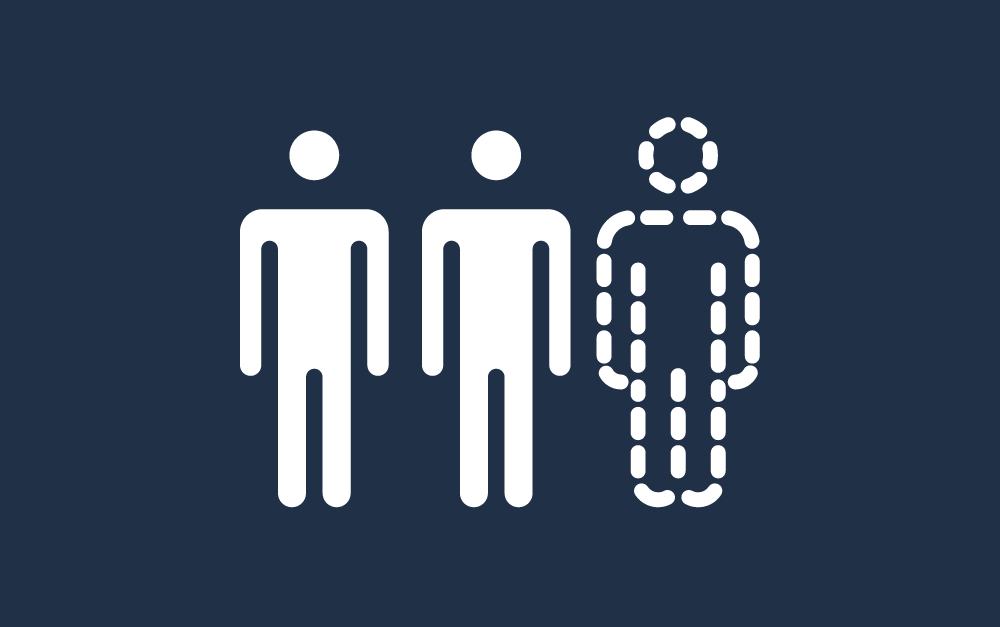Understanding the ongoing nationwide shortage of behavioral health professionals
IPC Admin | July 15, 2020

In the United States (and Midwest specifically), there is a shortage of behavioral health professionals. The Health Resources and Services Administration (HRSA), a primary federal agency for improving health care to people who are geographically isolated, economically or medically vulnerable, measures and reports on Health Professionals Shortage Area (HPSA). An HPSA is defined as a geographic area, population group or facility designated by HRSA as having shortages of primary medical care, dental or mental health providers. These are mutually exclusive categories, thus there is no double count for the estimated underserved population. Specific to the behavioral health industry, this is a major issue where need is being underserved significantly. Compounding the problem is the high turnover among providers changing hospitals and average age of the psychiatrists skewing increasingly towards 55+ because of relatively lesser number of new entrants.
An extract from the 2020 Q2 HPSA report is provided below:

Severe Shortage of Psychiatrists
National:
- There are 5,565 sites in the U.S. that are registered Health Professional Shortage Areas (HPSA) in the mental health category.
- These sites serve over 100 million internees in designated HPSA provider facilities.
- When the highest patient to provider ratio is taken into account, only 27% of need is met for providers.
- According to the 2020 Q2 HPSA report, percent of need met is “computed by dividing the number of mental health providers available to serve the population of the area, group, or facility by the number of mental health providers that would be necessary to reduce the population to provider ratio below the threshold for designation so that it would eliminate the designation as a mental health HPSA”
- In other words, a high number of mental healthcare facilities are nowhere near meeting the minimum client to provider ratio.
Looking at state specific data, Missouri’s situation is severely underserved while Kansas, still being underserved is slightly above the national average. Missouri alone has 250 HPSA designations, ranking 4th out of all 50 states in number of designations, while being the 18th most populous state, thus highlighting its status as severely underserved.
What does this mean for behavioral health?
The National Council for Behavioral Health released a report in 2017 on Psychiatric shortages. It painted a dark picture for the current state of affairs and its impacts on behavioral healthcare.
- Extended wait times for clinical settings, especially in public or Medicaid covered facilities
- Lack of immediate access in emergency settings
- Lack of Primary care clinicians
- Lack of inpatient beds
- Psychiatrists tending towards private cash-only practices
- High turnover rates alongside low density, drastically limiting the output of quality patient care, not to mention additional costs and logistical issues.
A healthcare organization in this environment needs a partner. A partner like IPC that can provide a cafeteria of services to choose from – Telepsychiatry, Outpatient, Inpatient, Residential, Emergency 24/7 on-call, Executive Leadership, as well as adding critical process improvement at clients’ facilities to achieve maximum efficiency while meeting the Joint Commission standards.
Recent Posts
The State of Telehealth Services for Psychiatry
IPC Staff | November 13, 2025
Visit our Booth at AACAP’s 2025 Annual Meeting
IPC Staff | October 20, 2025
Visit us at ACMHCK 2025 from September 23-25
IPC Staff | September 21, 2025
Telehealth is Health: Celebrating Progress During Telehealth Awareness Week 2025
IPC Staff | September 17, 2025
Let’s Connect at the Colorado Behavioral Health Conference, Sept 17-20, 2025
IPC Staff | September 13, 2025
